Advertisement
The Story Of The World's First Vegan Sports Team
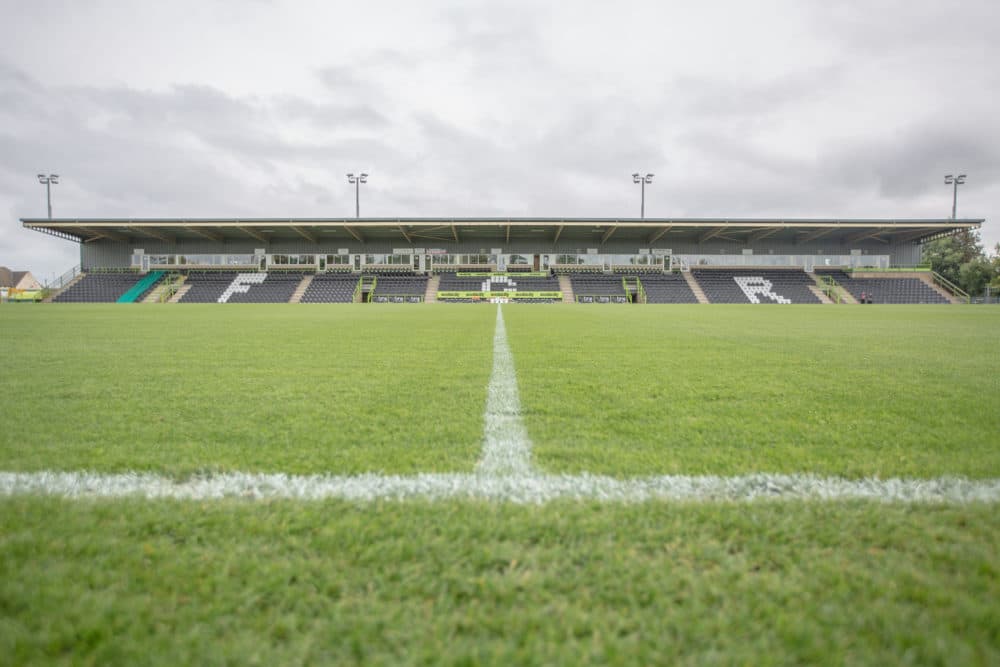
The menu at sports events has traditionally been a bit limited … and unhealthy.
Especially at soccer games in England.
"On a match day, you’re looking at a lot of sausages, burgers, bacon sandwiches. Quick and easy fried food," says Forest Green Rovers striker Reuben Reid.
His team is broadening its menu with healthier fare. But that’s just one part of a much larger mission.
Rescuing The Rovers
In 2010, Forest Green Rovers, then a fifth-tier football club in Nailsworth, England, was in financial trouble. Dale Vince, who loved the sport as a kid, was approached by the team.
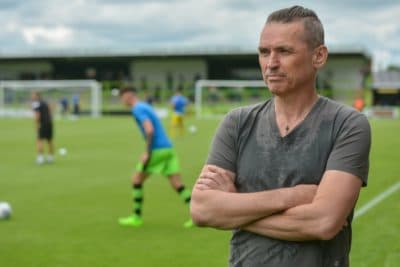
"They said they needed a little bit of help to get through the summer," Vince says. "And I thought it would be a nice thing to do — because we could, so we should. But within a couple of months, it was clear that they needed much more than just a little bit of money.
"And they said to me, ‘You really need to be the Chairman.’ And I said, ‘I really don’t. I’ve got so much else to do.’ But I then faced the choice — if I walked away, they would fold."
It was heady stuff for a guy who, two decades before, was living a hermit’s life on a hill in England’s bucolic Cotswolds region.
"I had an old U.S. Air Force radar trailer that I rescued from a scrap yard and converted into a home," Vince says.
In 1991, he was traveling in Cornwall. And something caught his eye.
"It was England’s first modern, proper wind farm," Vince says. "I was super impressed by these big machines because I was using little windmills to power my trailer and batteries from the scrap yard and stuff, you know, in my kind of off-grid life. And I was very impressed."
Advertisement
That inspired him to build his own windmill farm, beginning in 1996. He called his new company Ecotricity. It was a big risk.
"When I got started, renewable energy powered about 2 percent of Britain," Vince says. "Last year, it was 30 percent. And we’ve grown to be a company of about 700 people supplying about 200,000 customers."
Vince also created an electric car charging network and other green energy initiatives. His current net worth is estimated at over £100 million. He used some of that to buy Forest Green Rovers in 2010.
"I saw the opportunity to use football as a new channel to speak to a new audience of people about sustainability," Vince says. "It’s still a football club, but it’s become something else, as well."
"There were people at the time that said, ‘You’re gonna kill the club.’ "
Dale Vince
That transformation began when Vince noticed the way Forest Green Rovers players and fans were eating.
"Conventionally. And, actually, conventionally for football, which is even worse than normal conventional, if you know what I mean," Vince laughs.
Vince was a vegan before he was a businessman. When he attended his first Forest Green Rovers practice as team Chairman, the chef served beef lasagna to the players.
"And I was a bit shocked, actually," he remembers. "Because it meant, suddenly, I was part of the meat trade.
"And I said to the chef, ‘Can we stop that?’ And he said, ‘Yeah, absolutely.’ Manager agreed. And we all just, right there and then, said, ‘That’s it.’
"We cut red meat out of the menu straight away for the players. We did it across the whole ground at the same time, so staff and fans and visitors as well. And then we took a series of other steps over the next couple of years toward full-on veganism."
The team dropped all meat, fish and dairy. By 2015, Dale Vince was the Chairman of the world’s first vegan sports team.
"There were people at the time that said, ‘You’re gonna kill the club. Nobody’s gonna eat it.’ This kinda stuff," Vince remembers.
And what about the players? Wasn’t veganism a tough sell to a bunch of rough, tough football blokes?
"No, we never had any trouble," Vince says. "They were all ears for it. We’ve got several players at the club that have gone vegan completely, but several have taken that home with them. And they’ve taken themselves and their families vegan."
Star Striker Goes Vegan
One of the most enthusiastic was striker Reuben Reid, who joined the team about a year ago.
"I was struggling — really struggling," Reid says. "Really bad mood swings. Loss of energy. Rapid weight loss. I would train hard or play a game and then wake up the next day and I wouldn’t be able to, sort of, run."
The 30-year-old Reid took to veganism almost immediately.
"I can train, I can play on the weekend," Reid says. And, on a Monday morning, I can train again and carry on training and training without feeling any aches or pains. So I’ve got a lot more stamina, and my recovery time has improved, like, times five."
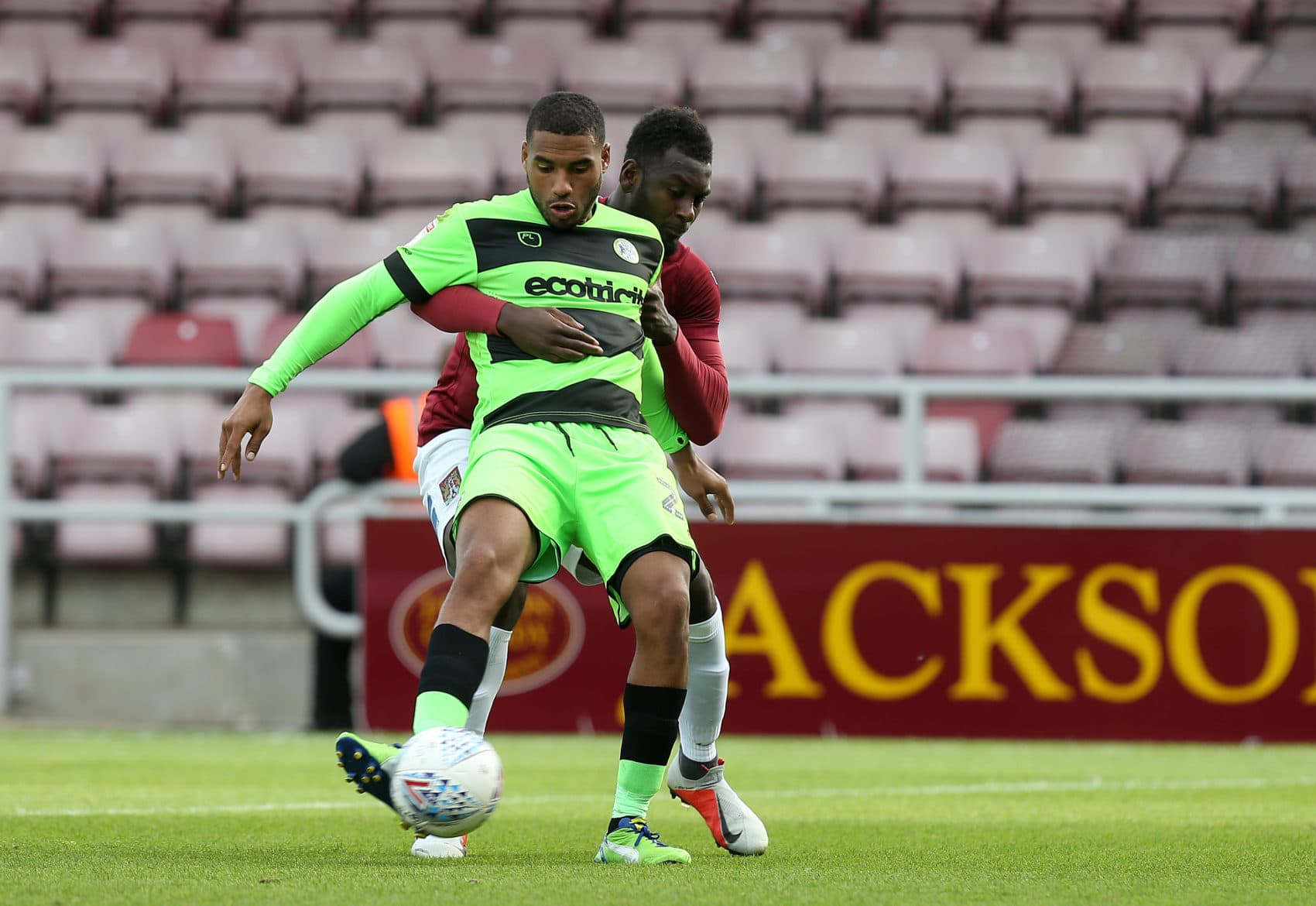
Reid is fully vegan now. And his boss is pleased. I asked Dale Vince if he cares about what his players eat on their own time.
"I do and I don’t care," he laughs. "This is always a question that comes up: ‘Is it in their contracts? Do they have to be vegan?’ The answer is no."
But if they do choose veganism, Reid says they have lots of options.
"You can still have your curries — but they will be more bean-based, chickpea-based," Reid says. "And also just your general greens and veg, really. Sometimes you get meat substitutes. The list is endless."
One of those meat substitutes, a product called “Quorn,” is the main ingredient of Forest Green Rovers’ signature dish at home games: the “Q-Pie.”
"It is very tasty," Reid says. "If you ate it with your eyes shut, you wouldn’t believe it still hasn’t got meat in it."
"It seems so improbable — I think, to most people — that a football club could either be vegan and/or be putting on great food," Vince says.
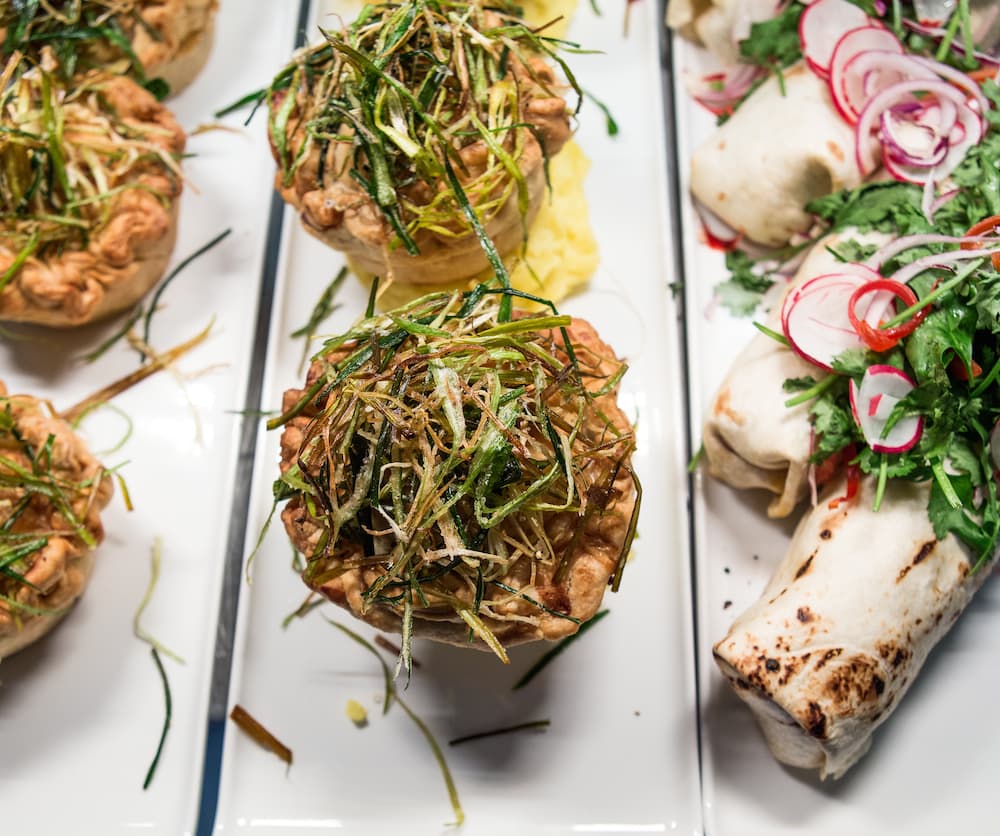
"Salads, pizzas, lots of curries — that’s a very popular thing with vegan food," says Barnaby Beere, who has been a Forest Green Rovers fan for about five years. He’s among the growing ranks of match-goers suspicious about what’s in the meat pies at other venues.
"Allegedly steak," he laughs. "Like, beef steak."
At first, Beere was happy to occasionally sample the vegan fare at FGR home games. Then he learned that former Forest Green player Dale Bennett had gone 100-percent vegan.
"And I’d always admired him as a player," Beere says. "He was very, very powerful on the pitch. Great sprint performance and very, very strong on the ball. And so I thought, ‘Well, if he can go vegan and not jeopardize how he makes his living playing football, then it’s an OK thing to do. And I should be OK doing it, just as a sort of average guy.’ "
Beere went fully vegan about a year ago. He says he’s about 30 pounds lighter now and that he has more energy and doesn’t get sick as often. His sons dabble in veganism at FGR home games.
"They do nuggets — they look like chicken nuggets like you get at a McDonald’s — but they’re made of Quorn," Beere says. "The kids love them. Both my boys. Especially the younger one. He genuinely thought he was eating chicken nuggets for a whole season. And he couldn’t understand why it was a vegan club and you could still buy chicken nuggets."
"I would say food sales have probably increased fourfold since we began," Chairman Dale Vince says.
Carbon Neutrality
The team also collects rainwater for use around its stadium, fittingly called “New Lawn,” fittingly located on “Another Way.” Stadium kitchens recycle cooking oil into biofuel. The soccer pitch is mowed by a solar-powered, GPS-guided robot. In July 2018, The United Nations recognized these efforts by certifying Forest Green Rovers as the first carbon-neutral football club. But Dale Vince wants to take things even further.
"We’ve got plans for a new ground, a new stadium and a chance to really push the envelope for sustainable development at this new location," Vince says. "So we’re really just getting started."
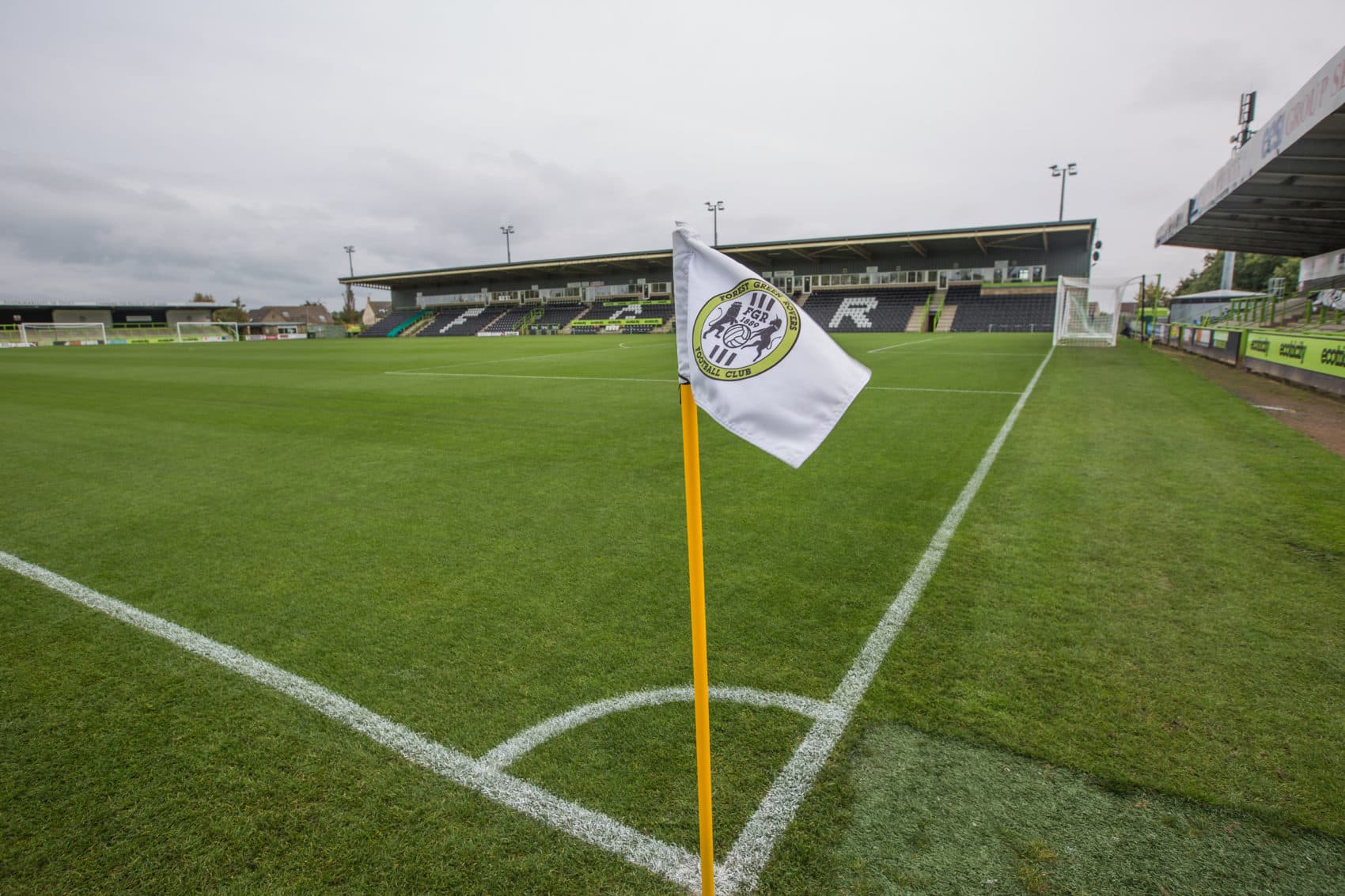
Still, there are some detractors.
"I think we get a lot of stick, really," Reid says. "You hear whispers, because we’re a smaller club, and we’re just making our way in the Football League. And we’re trying to do things different. I think people might think we’re attention-seeking. I just think that’s for narrow-minded people, really."
Barnaby Beere hears from them, too.
"You do get a bit of a ribbing from other clubs about things like no meat pies at the games," Beere says. " ‘If you had some more meat pies, then you might win more games.’ That sort of thing, you know?"
But winning hasn’t been a problem. Forest Green Rovers, playing for the first time in League Two, are currently within reach of a playoff berth. And they have a chance to make the leap to the next tier.
"Where we’ll have a bigger platform and a bigger reach for our work and our message," Vince says.
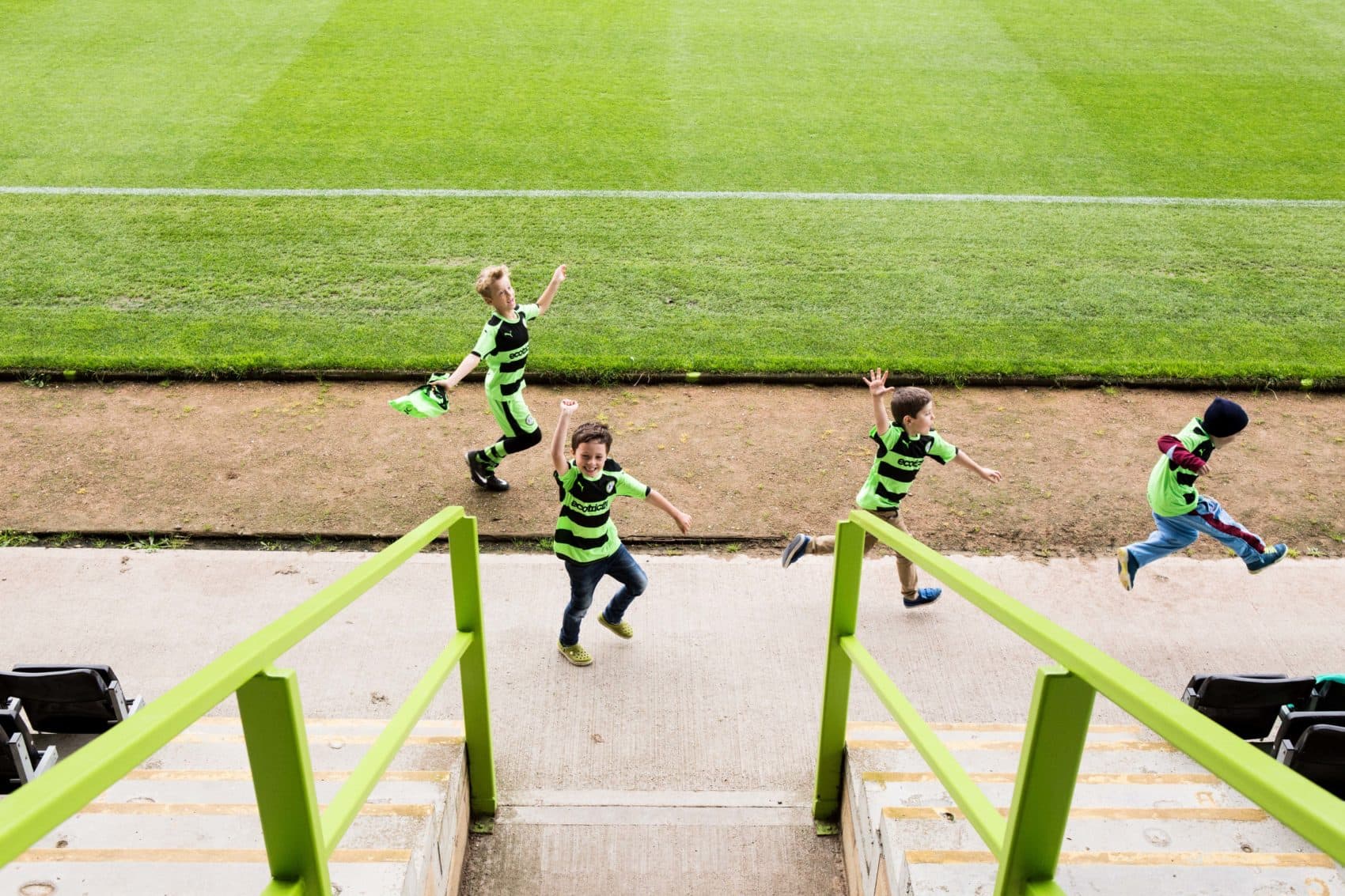
Forest Green Rovers’ success must make it tempting for Barnaby Beere and fellow fans to return the ribbing, right?
"No," he laughs. "I don’t think vegans go in for taunting very much."
This segment aired on January 5, 2019.
